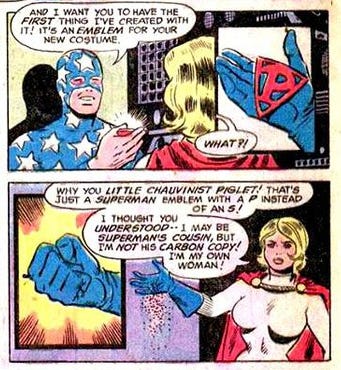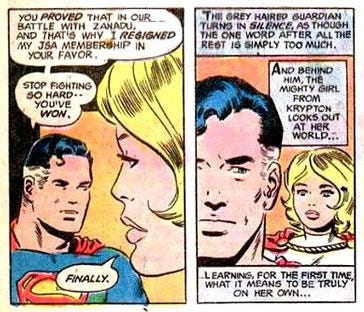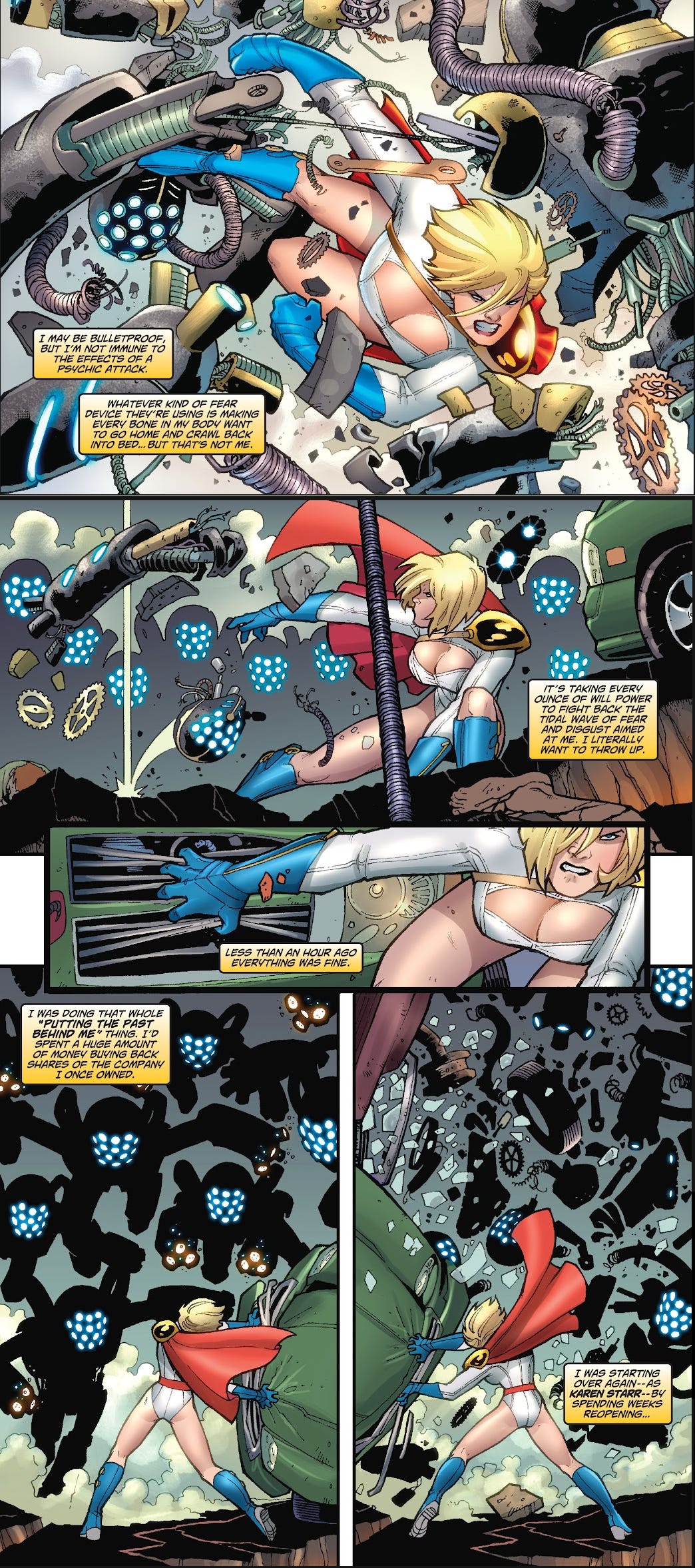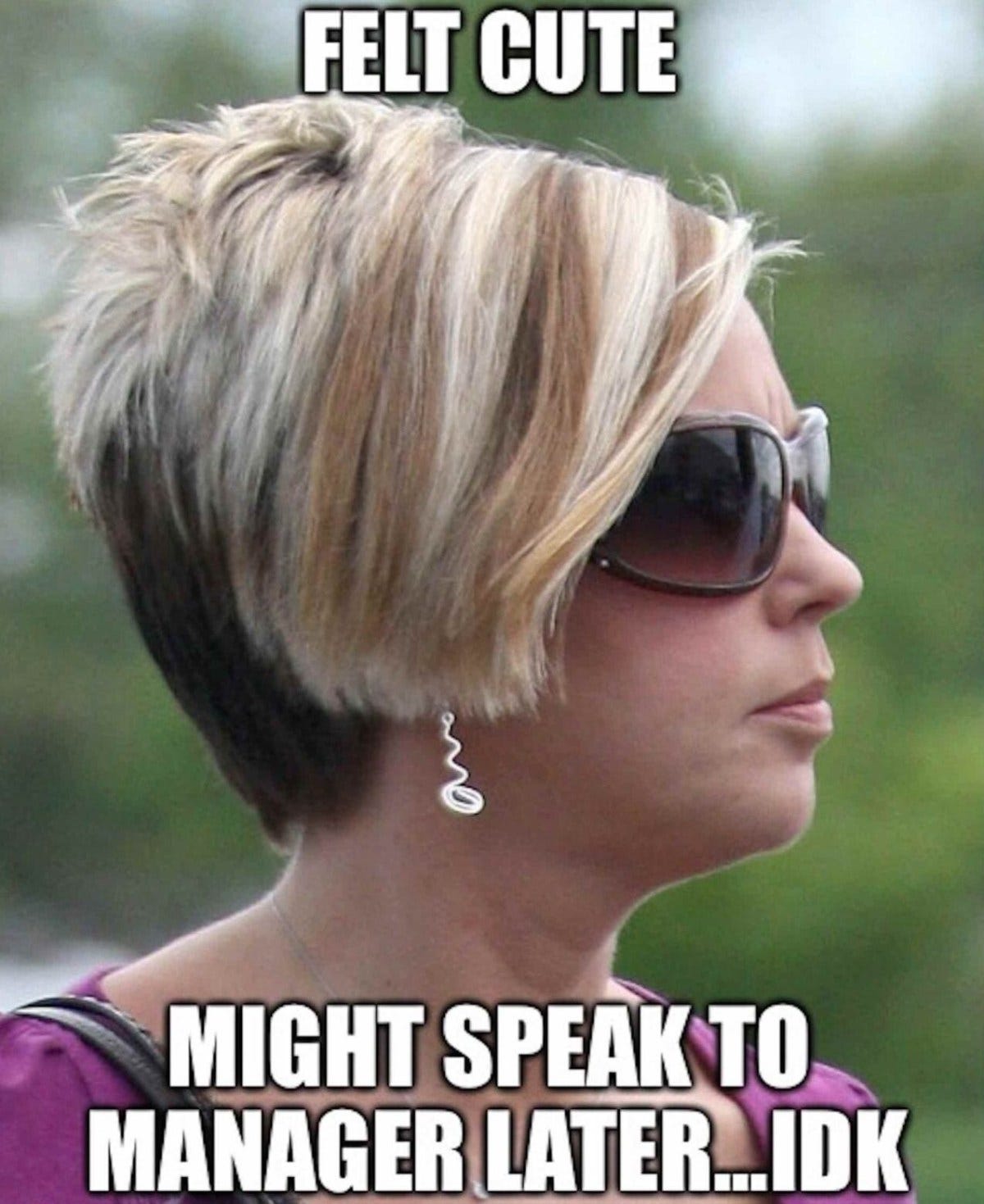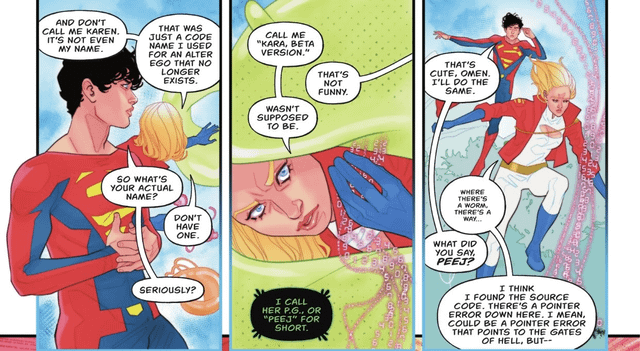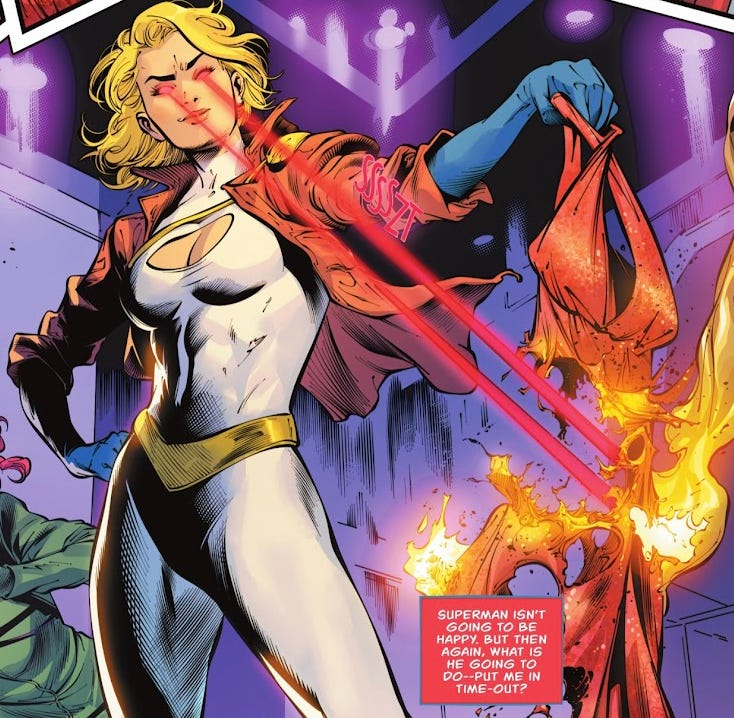What to do when your long-running character’s first name takes on uncomfortable meanings?
DC Comics’ Power Girl can be a paradox. She’s wildly powerful as a hero but subject to the whims of a multiverse that sometimes seems out to get her.
She was created as an alternate-universe version of Supergirl—a long-lost cousin and fellow hero to Superman, with more or less his powers. But while Supergirl approached life with bubbly, Barbielike optimism, Power Girl had more of a temper.
That reflects their “age gap.” Supergirl was created in 1959. By the time Power Girl came along in 1976, women’s fight for equality had reached the comics page. Much younger than her version of Superman, Power Girl echoed some of her contemporaries’ gripes…
…at the risk of other heroes (and comic-book narrators) patronizingly shaking their heads. “Why are these young ‘wimmen’s libbers’ always so ANGRY?”
But readers liked that fire. The freedom to spout off, the freedom to not have to “act pretty” or “nice,” can be its own super-power when “pretty” and “nice” is what society demands. (One can be beautiful without acting “pretty.”)
P.G.’s feisty edge helped her outlast the 1970s and sustained her through many other changes. When her home universe collapsed, she not only survived but saw her fortunes improve. She did a stretch with the Justice League, had solo adventures out of the shadow of any Superman…and started her own tech business on the side.
Like Supergirl, her Kryptonian name was “Kara.” But in her CEO guise, she Anglicized it to Karen Starr.
Starting to see where this is going?
A “Karen” has come to mean an entitled, demanding white woman of some means…someone who makes life difficult for waitresses, baristas, and sales clerks. Power Girl’s never menaced such people—she punches up, not down. She’s no bully. But a lot of her surface traits matched the “Karen” profile, from her short blonde hair to her finances to—especially—her short fuse.
The jokes seemed ready to write themselves. DC’s writers and editors got out in front of the problem… some would say, by creating a new one.
The latest update of Power Girl’s character seems to hang onto some of her brashness but eliminate other “Karen” signifiers—starting with the name. She now goes by Paige (adapted from P.G./“Peej”). She’s traded her tech CEO days for tech journalism, working under new Daily Planet editor Lois Lane. She’s sprouting new powers—mind-walking, dimension-hopping—that test her empathy more than her right hook. She’s started wearing Clark-Kent-style glasses as Paige, too.
To be clear, I haven't seen a “make her not Karen” memo written by any creative spokespeople from DC. This is just a long time observer’s theory. But I think it's a good one.
For longtime fans of the character, all this humbling and rebranding seems a bit much. Maybe trying a little too hard to make her “act pretty” and “nice.”
But she’s still a fighter. And her sassy spirit does show itself in her newest costumed adventures. If it sometimes feels like the creators are making her pay for it, cutting her off from her homeworld and putting her at odds with heroes like Superman—well, she's been dealing with stuff like that from the start. Plus ça change, plus c'est la même chose.
As ever in comics, it’s hard to tell which changes will stick.
Comics characters occasionally change aliases, but changing civilian names is more unusual, even when those names can be insults. Dick Grayson, the original Robin, changed his alias to Nightwing, but he's been “Dick” for 83 years.
But “unusual” isn’t “unprecedented.” Once, the Batman villain Two-Face seemed like he might’ve been a long-lost cousin of Superman, too. That was when he was named not Harvey Dent, but Harvey Kent.
Next: Emoji news, and a special anniversary!




